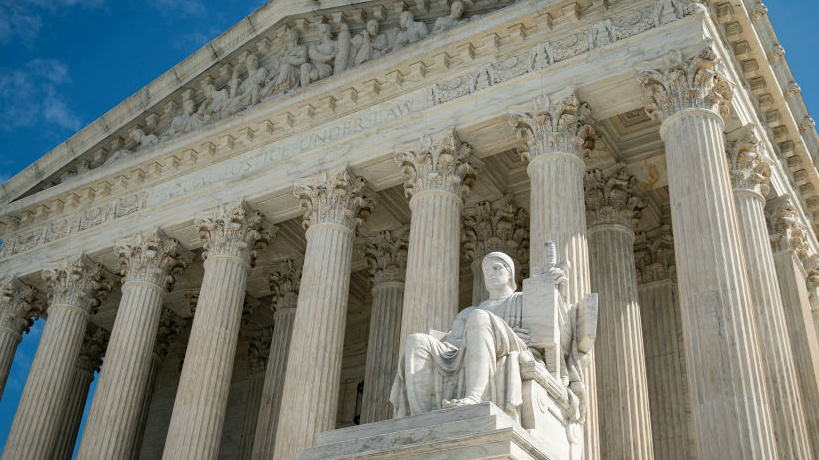A new ruling from the U.S. Supreme Court could provide victims of excessive force by an officer a clear path to receiving justice.
In a 5-3 vote, the Supreme Court ruled in favor of a New Mexico woman who is seeking to sue two officers who she said violated her Fourth Amendment right which prohibits law enforcement from conducting unreasonable searches and seizures, according to Reuters.
Roxanne Torres was sitting in her car in 2014 when two people approached her car with a firearm. She then drove off, mistakenly thinking she was escaping a carjacking and was shot twice by the police, CNN reported. She, however, was not immediately apprehended on the scene by officers.
In a civil rights lawsuit, Torres said the officers prevented her right to be free from unreasonable seizures when she was shot twice in the back.
The justices subsequently argued whether using lethal force to restrain a person, even if the person is not physically detained, can be categorized as a "seizure."
Now, under the new ruling, a person does not have to be physically detained by officers to sue under the Fourth Amendment.
“We hold that the application of physical force to the body of a person with [the] intent to restrain is a seizure even if the person does not submit and is not subdued,” conservative Chief Justice John Roberts wrote in the ruling.
Joining Roberts in the favorable vote were Justices Brett Kavanaugh, Sonia Sotomayor, Elena Kagan and Stephen Breyer.
In the dissenting opinion, Justice Neil Gorsuch said Torres' case should only be reviewed under the Fourth Amendment if she had been physically detained, CNN reported.
"The majority's need to resort to such a schizophrenic reading of the word 'seizure' should be a signal that something has gone seriously wrong," Gorsuch wrote. "Today, for the first time, the majority seeks to equate seizures and criminal arrests with mere touches, attempted seizures and batteries," he said.
William & Mary Law School professor Jeffery Bellin said this ruling grants people the opportunity to sue police for excessive force, NBC News reported. The ruling could have a monumental impact as the country grapples with police brutality against Black people.
"The ruling that a 'seizure' occurred, in this case, means that more unjustified police shootings and other uses of force can be found to violate the Constitution," Bellin said.
Standing as a challenge to the new ruling though is qualified immunity which protects law enforcement from certain civil litigations. The legal doctrine is in the hands of lawmakers on Capitol Hill as the Senate decides the fate of eliminating qualified immunity for officers under the George Floyd Justice Policing Act, as Blavity previously reported.
